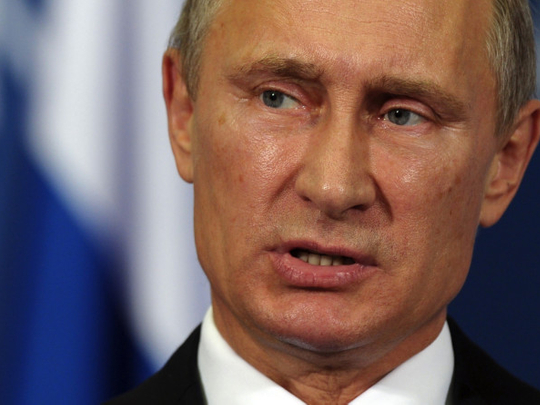
Is the state making a comeback? It can certainly look like it. Old-fashioned interstate conflicts are roiling the South and East China Sea and Russia’s western borders. Inter-governmental meetings such as the last Asia-Pacific Economic Cooperation conference and the G20 leading economies in Brisbane took on an unusual urgency. More positively, it is old-fashioned diplomacy that is making the running on issues from Iran’s nuclear programme to global warming.
Yet, the dominant view since the early 1990s has been that globalisation meant the transformation of the world through non-state actors. The end of the Cold War ushered in an almost Marxist expectation that the state would wither away — overshadowed by free flows of money and goods, undermined by non-state actors, of which terrorist groups were only the most obvious. It was an expectation shared right across the political spectrum.
On the left, critics of market globalisation anticipated the rise of people power. Non-governmental organisations would supersede the supposedly worn out institutions of the nation state and create new, more vibrant forms of political activity. Technology would bring better solutions to old problems, bypassing stagnant state institutions.
The neoliberal right hailed the rise of global finance, the dismantling of capital controls and the deregulation of banking, not least because all of these weakened national governments’ capacity to control markets. In manufacturing and services, enormous new powers accrued to corporations able to take advantage of differing tax regimes and wage levels across the world.
Yet, these hopes underestimated the sheer staying power — indeed the legitimacy — of the state and its institutions, and the extreme difficulty of creating new ones from scratch. NGOs remain on the sidelines: International organisations are vehicles for clusters and coalitions of national states to act in concert where they can. To that extent, they are essentially derivative, reflecting the wishes of their most powerful members. The idea that they could be freed from the clutches of national governments was a pipe dream.
And the neoliberal infatuation with unfettered markets has not fared much better. The era of globalisation was always one of instability and in Mexico, East Asia, and Russia, the costs of crisis were evident to those who cared throughout the 1990s. But it was only a decade later, when the failure of Lehman Brothers and its aftermath robbed Americans and Europeans of their faith in capitalism, that perceptions started to change where it counted.
Since then, power has shifted back towards the state on multiple fronts. It was, after all, taxpayers who bailed the banks out. It fell to central banks, in conjunction with finance ministries, to superintend the exit from crisis. Since 2010, the increasing inequality that has accompanied the recovery has fuelled an underlying swell of electoral anger not only against the banks but also against the light tax burdens enjoyed by many global corporations. The change in sentiment threatens further trade liberalisation and has propelled calls for the international harmonisation of corporation taxes up the political agenda. At the same time, Vladimir Putin’s muscle-flexing illustrates the continued indispensability of states in settling matters of war and peace.
In reality, the state has been with us the whole time. Its fiscal imprint has hardly changed in decades: US government receipts, for instance, are much the same percentage of output today as in 1960. In the United Kingdom, public spending has fluctuated within a fairly narrow band throughout the same period. What happened over the past two or three decades was less a withering away of the state than a recalibration of official priorities. Abdicating strategic planning internally, the state become an arbiter of regulatory regimes. Externally, it transformed defence budgets, transferring resources from men to machines.
The financial crisis has accelerated some of these trends and started to reverse others. States — or the politicians who lead them — are still reluctant to do what would have been done in the 1940s. They remain strikingly reluctant to impose tougher penalties on banks or to identify unemployment as a priority. But what is perhaps important is what the crisis has done globally: By discrediting the more mythical idealisations of the market, it has encouraged the restoration of state power as a goal in itself. This programme is easily harnessed by authoritarian leaders in the name of national sovereignty and democracy. Hungary and Russia exemplify the trend. We have heard a lot, this past 20 years, about the decline of the state. We will not be hearing much more.
— Financial Times
Mark Mazower is professor of history at Columbia and author of Governing the World: The History of an Idea.









